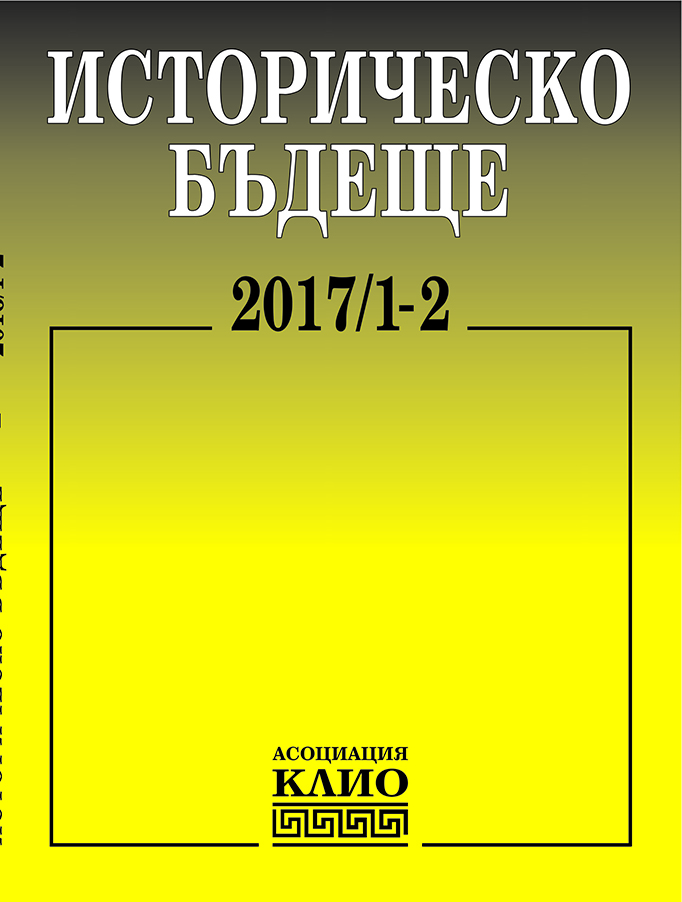ВМОРО и надзора над стопанския живот в Македония и Одринско (до навечерието на Балканските войни)
IMARO and the Surveillance of the Economic Life in Macedonia and Eastern Thrace (Until the Eve of the Balkan Wars)
Author(s): Elena AleksandrovaSubject(s): History, Economic history, Social history, Special Historiographies:, 19th Century, Pre-WW I & WW I (1900 -1919), The Ottoman Empire, Between Berlin Congress and WW I
Published by: Асоциация Клио
Keywords: Internal Macedonian-Adrianople Revolutionary Organization; Macedonia; Eastern Thrace; economic policy; everyday life
Summary/Abstract: The article explores the economic policy of the IMARO (Internal Macedonian-Adrianople Revolutionary Organization) in Macedonia and Eastern Thrace in the period to the Balkan wars, illustrating its effect on the local population. The mechanisms through which IMARO entered the economic everyday life of both areas and the results of these actions are presented. On the basis of rich source material the concrete interventions in the sphere of agriculture, urban economic life and the tax system are highlighted. Tracing of the elements of this economic policy, known as ‘disciplinary process’, the importance of the change in the economy in both areas for both the Organization itself and the population is clarified. It is shown how with its concrete activities of social control over the everyday life IMARO managed to fulfill its program maximum in the field of economy in the villages and cities of Macedonia and Eastern Thrace. As a result, a process of disintegration of the Ottoman agrarian system began in both areas, and the tax revenues to the treasury were shifted to the organizational funds as a serious revenue. To a lesser extent, unlike agriculture, the Organization was able to set foot on urban markets as well.
Journal: Историческо бъдеще
- Issue Year: 21/2017
- Issue No: 1-2
- Page Range: 151-208
- Page Count: 58
- Language: Bulgarian
- Content File-PDF

